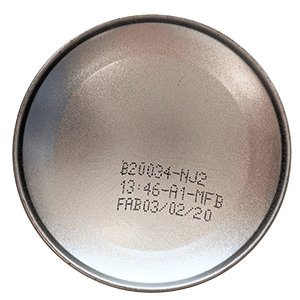KEEP OUT OF REACH OF CHILDREN
PRECAUTIONARY STATEMENTS: Hazards to Humans and Domestic Animals
CAUTION: Causes moderate eye irritation. Avoid contact with eyes, skin or clothing. Wash thoroughly with soap and water after handling and before eating, drinking, chewing gum, or using tobacco.
PHYSICAL AND CHEMICAL HAZARDS: Contents under pressure. Do not use or store near heat or open flame. Do not puncture or incinerate container. Exposure to temperature above 120º F or in sun or discarding can in fire or incinerator may cause bursting.


